We, with more than 300 young parliamentarians, are present at the 9th Global Meeting of Young Parliamentarians from September 14-17, 2023 in Hanoi , Vietnam to affirm our commitment to promoting the implementation of the Sustainable Development Goals (SDGs), especially through digital transformation and innovation.
Delegates attending the closing ceremony of the conference. (Photo: DUY LINH)
Our average age is 38.4 years and about 44% of us are women parliamentarians. The Conference was attended by representatives of global and regional organizations, youth groups, start-ups, young intellectuals and leaders from the IPU and Vietnam. We are delighted that the Conference falls on September 15, the United Nations International Day for Democracy.
Our conference in Vietnam marks the eighth anniversary of the Hanoi Declaration on the SDGs, which was adopted by the Inter-Parliamentary Union in 2015 and set out the commitment of parliamentarians to address global priorities. As the 2030 Agenda for Sustainable Development (2030 Agenda) reaches its halfway point, this is a crucial and decisive moment.
We highlight with concern that with less than seven years to go to achieve the SDGs, only 12% of the targets are currently well underway, while up to 50% of the targets are still moderately to severely behind schedule.
These results require not only serious reflection but also bolder action, paying particular attention to the remaining gaps in achieving education, gender equality, employment, economic growth, climate action, peace , justice and institutions, as these are particularly important concerns for young people.
There are still 258 million children out of school, and we need universal education that leaves no one behind. The youth not in employment, education or training (NEET) rate is worse, rising to 23.4%. Young women are still worse off than men and are only two-thirds as likely to be in work. We are also not on par when it comes to the representation of women and young people in politics.
Less than 27% of parliamentarians worldwide are women and only 2.8% are aged 30 or younger. We need to work faster, more creatively and with greater urgency to achieve the common agenda that all countries have agreed.
Our world is witnessing rapid technological development, digital transformation and innovation. We need to harness this potential to accelerate the implementation of the SDGs, especially those that are important to young people.
In education, for example, digital tools can open up education and training opportunities to more young people through online means. By unlocking innovation, we can help more youth-led start-ups grow, creating more jobs for more young men and women.
While these businesses are already doing a great job of adapting to or mitigating the impacts of climate change, investing in the next generation of green sectors can have a multiplier effect.
The opportunities ahead are clear and open to all, yet a large gender gap persists. It is not reasonable that women are 26% less likely to own a smartphone than men. Digital transformation and innovation must be an opportunity to advance gender equality by facilitating new pathways for women to increase their autonomy.
As key innovators, technology users and technology enablers, young people are in a key position to put digital transformation and innovation at the heart of actions to accelerate progress on the SDGs and make them more accessible to all and leave no one behind.
It can be seen that young people today have been taking on many important positions in the private sector such as CEOs of technology companies and innovative startups, or investors in the field of digital transformation. And in the political field, the position of young people also needs to be developed similarly.
We, young parliamentarians, know how to tackle complex issues in the digital landscape and we understand best the pulse of the youth and future generations of our country. Our role is to bring their will and aspirations to the floor of parliament.
Young people are familiar with new technologies, they have all the values to promote new solutions for the benefit of all humanity, through entrepreneurship, developing new technologies and harnessing Artificial Intelligence (AI). We reiterate our call for parliamentarians and political leaders to take transformative action to engage more young people in politics by joining the IPU Campaign “I support youth participation in Parliament!”.
The Covid-19 pandemic has demonstrated the strategic importance of digital tools in our parliaments. These tools can contribute to more inclusive and transparent legislation, scrutiny, decision-making on important issues and increased public participation. Real-time interaction channels can enable instantaneous interaction between constituents and representatives.
By creating positive conditions, digital transformation can empower citizens, especially young people, to actively participate in the political process and help shape policy decisions. For parliamentarians, these digital tools offer greater opportunities to combine their work and private lives, especially for those with family care responsibilities.
We welcome the SDG Self-Assessment Toolkit as an innovative approach to help parliaments integrate the SDGs into their work according to their specific characteristics and contribute to the effective implementation of the SDGs in a more consistent and sustainable manner.
Science and technology are fundamental to promoting peace and sustainable development, and also provide solutions to today’s complex challenges. Science enables informed and evidence-based policy-making, whether on environmental protection, development or conflict resolution.
Science can be the basis for the search for knowledge and solutions for common goals, providing a neutral ground for cooperation and motivating peaceful coexistence. We, as young parliamentarians, can play an important role in developing a generation of young people who are technologically literate and capable of solving problems to promote peace and sustainable development.
As we harness the power of technology and innovation in a changing world, we must strive to maximize the benefits they bring while minimizing unintended risks. This includes taking an ethical and prudent approach to science and technology to ensure that they are used for the benefit of humanity and the environment, while also protecting privacy, security and well-being.
At the same time, in promoting digital transformation and innovation, we should not promote global homogenization, but instead respect the richness of different cultures, experiences and perspectives. Cultural diversity is a strength for sustainable development, which should not only be protected but also cherished, as it is an indispensable element that can foster further creativity and innovation.
To help accelerate the implementation of the SDGs through digital transformation and innovation, we young parliamentarians discussed and proposed the following actions:
1. In the area of Digital Transformation, we call on and recommend that member parliaments:
a. Update the regulations and working methods of the parliament so that parliamentarians can participate and apply online, convert more digitally, take advantage of interactive platforms to support direct dialogue between voters and parliamentarians, promote the participation of groups, especially young people, in parliamentary activities;
b. Consider exploring the establishment or strengthening of forward-looking parliamentary committees, such as the Futures Committee and mechanisms appropriate to each country's specific circumstances, to help parliaments anticipate and respond to long-term trends or potential threats, and ensure that young people participate in such bodies;
c. Ensure that all parliamentarians are equipped with the necessary knowledge and technical support to fully participate in online legislative procedures; increase the application of virtual assistant platforms to support parliamentarians; use AI tools to improve the quality of legislation; and build a digital library for national legal documents;
d. Issue legal documents and policies to narrow the digital divide and ensure accessibility for all, through measures including low access costs, building digital infrastructure and improving professional skills;
e. Building an appropriate legal framework and enhancing international cooperation in protecting the digital sovereignty of countries to create a safe, healthy and sustainable network environment;
f. Issue appropriate policies and procedures to prevent and respond to forms of online harassment and violence against parliamentarians, including violence against women parliamentarians;
g. Support the development of effective information and data collection mechanisms and methods to monitor the implementation of the SDGs;
h. Support the role of the United Nations in building standards and legal frameworks on cyberspace, digital transformation and AI on the basis of consensus.
2. In the field of Innovation and Entrepreneurship, we call on and recommend that member parliaments:
a. Strengthening the innovation and entrepreneurship ecosystem, through building a legal framework for innovation and entrepreneurship, increasing the budget to support youth-led businesses, entrepreneurship and innovation initiatives through funding, financial and technical support in line with the SDGs, focusing on empowering young women;
b. Promote the development of educational programs that focus on the skills needed to prepare the next generation – a generation of young innovators and entrepreneurs who prioritize digital skills;
c. Calls on the IPU to consider possible solutions within its existing mechanisms to engage on innovation and digital transformation issues;
d. Promote a global network of young parliamentarians on digital transformation and innovation, within the framework of the Young Parliamentarians Forum, in close coordination with the IPU Innovation Hub;
e. Strengthen the relationship between the scientific community and parliaments to create more space for science to contribute to peace and sustainable development, with a focus on prioritizing youth engagement;
f. Encourage start-up and innovation activities focusing on youth, students, especially women, strengthen gender mainstreaming linked to SDGs; build a separate program for digital innovation and digital start-up;
g. Promoting innovation and sustainable entrepreneurship in various fields, focusing on FoodTech, is a way to actively contribute to the implementation of the SDGs, solving food security issues, and ending hunger.
3. In the cultural field, we call on and recommend to member parliaments:
a. Develop a common parliamentary approach to establish a framework of principles and values in decision-making, research and development in science and technology, such as the IPU Code of Conduct on the Ethics of Science and Technology currently being drafted, to ensure that the development and application of science and technology are carried out responsibly, ethically and sustainably;
b. Contribute strongly to efforts to prevent online violence against women and girls, through promoting gender equality, controlling hate speech and regulating AI so that women and girls are protected and new technologies are gender-biased;
c. Strengthen data protection framework laws and other legal instruments, especially on personal data, cyber threats and promote open source and transparent algorithms;
d. Promote inclusiveness, intercultural dialogue and respect for cultural diversity and indigenous knowledge as a driving force for sustainable development, prosperity and peaceful coexistence;
e. Developing the role of culture as a driving force for sustainable development; committing to protecting and promoting cultural diversity, affirming the role of the creative economy and cultural industries; affirming the role of culture and cultural diversity in the process of solving current difficulties and challenges for humanity, especially the issue of climate change, preventing trafficking, illegal transportation and smuggling of cultural assets;
f. Promote respect for cultural diversity in the context of the 4th industrial revolution; strengthen cooperation in economic innovation, increase labor productivity, and create new driving forces for economic growth. At the same time, help state agencies operate more transparently and effectively on the digitalization roadmap, in order to narrow the development gap and ensure national sovereignty as well as personal privacy in cyberspace, while ensuring national sovereignty.
We would like to thank the National Assembly of Vietnam for its thoughtful, professional and successful hosting of this Global Meeting of Young Parliamentarians and support for the participation of young parliamentarians, youth and the promotion of the implementation of the SDGs, through the IPU and international and regional inter-parliamentary mechanisms.
We are ready to be partners in the mission of harnessing the power of technology and innovation to serve the SDGs, in a responsible manner and leaving no one behind, especially future generations, on the basis of respecting the fundamental principles of the United Nations Charter and international law. We will stand together to keep the promise in the Hanoi Declaration 2015 and respond to the urgent call of the 2030 Agenda.
According to NHAN DAN NEWSPAPER
Source


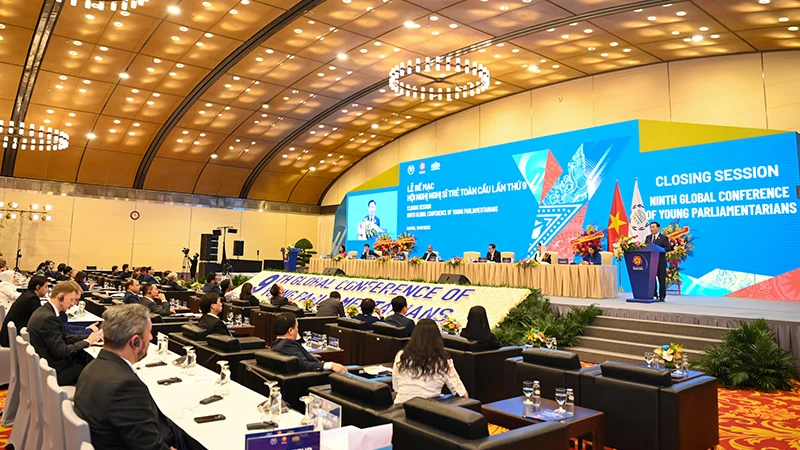
![[Photo] Panorama of the cable-stayed bridge, the final bottleneck of the Ben Luc-Long Thanh expressway](https://vphoto.vietnam.vn/thumb/1200x675/vietnam/resource/IMAGE/2025/9/30/391fdf21025541d6b2f092e49a17243f)
![[Photo] General Secretary To Lam, Secretary of the Central Military Commission attends the 12th Party Congress of the Army](https://vphoto.vietnam.vn/thumb/1200x675/vietnam/resource/IMAGE/2025/9/30/9b63aaa37ddb472ead84e3870a8ae825)
![[Photo] Solemn opening of the 12th Military Party Congress for the 2025-2030 term](https://vphoto.vietnam.vn/thumb/1200x675/vietnam/resource/IMAGE/2025/9/30/2cd383b3130d41a1a4b5ace0d5eb989d)

![[Photo] The 1st Congress of Phu Tho Provincial Party Committee, term 2025-2030](https://vphoto.vietnam.vn/thumb/1200x675/vietnam/resource/IMAGE/2025/9/30/1507da06216649bba8a1ce6251816820)
![[Photo] President Luong Cuong receives President of the Cuban National Assembly Esteban Lazo Hernandez](https://vphoto.vietnam.vn/thumb/1200x675/vietnam/resource/IMAGE/2025/9/30/4d38932911c24f6ea1936252bd5427fa)




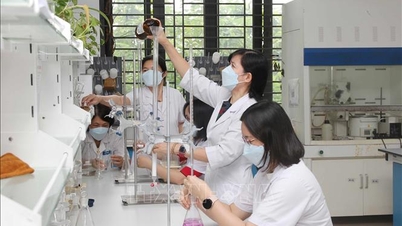
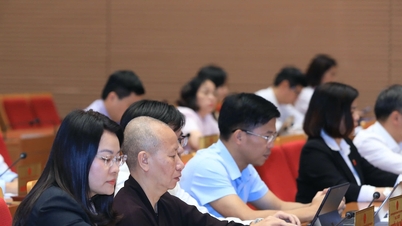

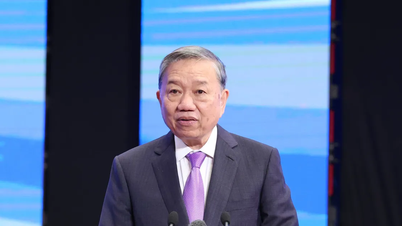

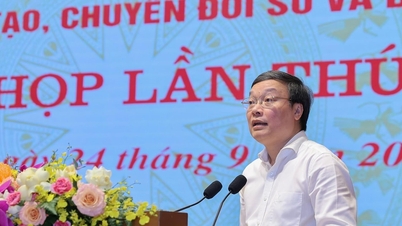

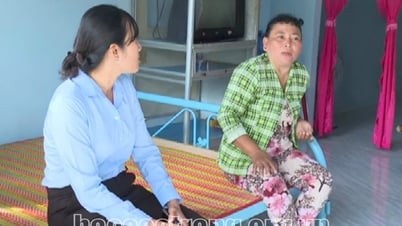


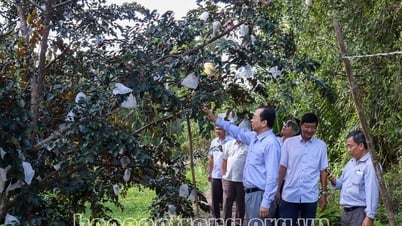










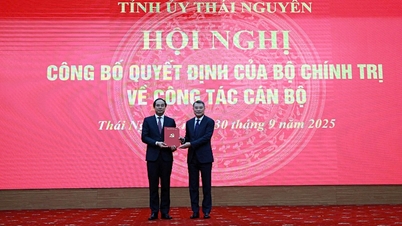
















































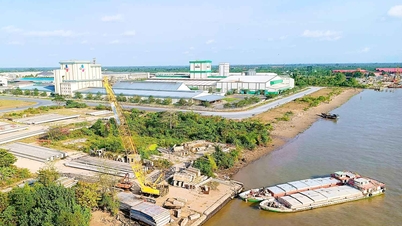
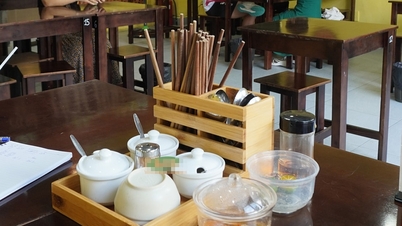

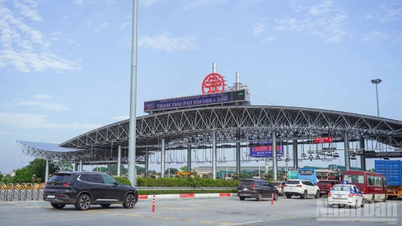
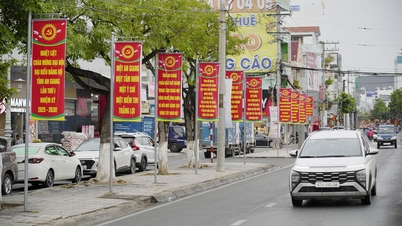















Comment (0)